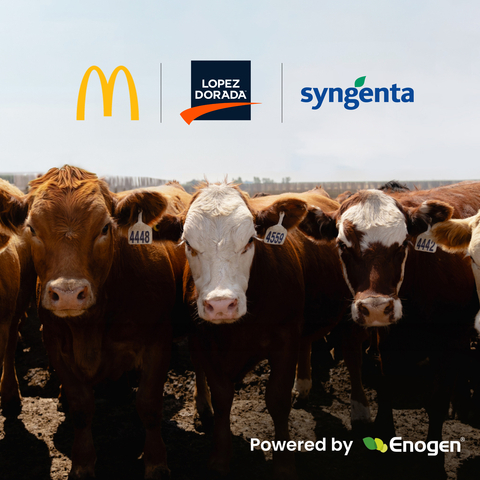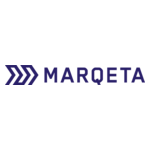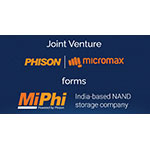- Syngenta, McDonald’s and Lopez Foods announce collaboration aimed at helping to reduce certain environmental impacts during beef production.
McDonald’s USA, Syngenta and Lopez Foods Collaborate to Help Produce Beef More Sustainably in the US
Syngenta Media Relations
media@syngentagroup.com
McDonald’s USA Contact
press@us.mcd.com
Lopez Foods Contact
breck.ferrell@lopezdorada.com
McDonald’s USA, one of the largest fast food restaurant chains, Lopez Foods, a multi-prote
in producer and long-term supplier to McDonald’s, and Syngenta North America, a leader in agricultural technology, today announced a collaboration that aims to increase feed efficiency and help reduce the amount of greenhouse gas emissions released per pound of meat produced, as part of efforts to improve the sustainability of beef production.
This press release features multimedia. View the full release here: https://www.businesswire.com/news/home/20241114754025/en/

McDonald’s USA, Syngenta and Lopez Foods collaborate to help produce beef more sustainably in the US
Enogen® corn is an in-seed innovation available exclusively from Syngenta, that has been shown to increase feed efficiency in cattle and thereby help reduce emissions intensity compared to other corn.
“At Syngenta, we’re convinced improving the sustainability of the global food system can be accelerated through innovation and collaboration,” said Justin Wolfe, President of Syngenta Seeds. “We’re proud of the great attributes of our Enogen® corn, and how our work can help enable McDonald’s and their beef supply chain to deliver impact.”
Ambitious climate commitments mean that companies like McDonald’s and Lopez Foods may need to invest in climate-smart technologies like Enogen® corn. “McDonald’s is starting with a priority ingredient for our company – beef,” said Kendra Levine, Director of US Sustainability for McDonald’s. “We believe the innovative collaboration with Syngenta is an opportunity to help us make progress toward our science-based climate targets.”
Enogen® corn, used for both grain and silage, contains a robust alpha amylase enzyme that quickly converts starch to usable sugars, delivering more available energy to cattle while being easily digestible. Increased digestibility of Enogen® corn can result in increased feed efficiency, which is widely recognized as an important approach to helping reduce greenhouse gas emissions in livestock production systems1.
University research has shown that feeding Enogen® as silage or grain can improve feed efficiency by about 5%.2 Life-Cycle Assessment (LCA) shows potential for environmental savings resulting from this increased efficiency, including lower emissions of greenhouse gases and lower use of land, energy, and water per unit of production.3 Specific findings show that, per 1,000 head of beef cattle, this collaboration could potentially achieve annual savings of4:
- 196 tons (178 metric tons) CO2e in GHG reduction
- 69 acre reduction (28 hectare) in land use for growing feed
- 6 million fewer gallons (22 million liters) of water used
- 231 thousand kilowatt-hours energy savings
McDonald's plans to scale this program to help deliver over 164,000 metric tons CO2e per year.
According to Wolfe, sustainability is fully embedded in the global business strategy of Syngenta, with clear targets and an ambition that guides the company’s innovation, including advancements in Seed technology like Enogen®. Syngenta sustainability priorities include achieving higher yields with lower impact, regenerating soil and nature, improving rural prosperity, and establishing sustainable operations. Collaborations like these will drive impact and change at scale.
1Min et al. Animals 2022, 12, 948. https://doi.org/10.3390/ani12080948; Waite, R, and J. Zionts. WRI 2022, 7 Opportunities to Reduce Emissions from Beef Production. https://www.wri.org/insights/opportunities-reduce-emissions-beef-production#
2 University of Nebraska-Lincoln Research Studies, 2013-2017; Kansas State University Research Study, 2017; Pennsylvania State University, 2019
3Based on LCA conducted by the University of Arkansas Resiliency Center for 1000 head, backgrounding through feed yard (Matlock et al. Analysis of Life Cycle Environmental Impacts of Using Enogen® Corn in Beef Cattle Rations. Animals 2021, 11, 2916. https://doi.org/10.3390/ani11102916) using these experimental data and resources: Transl. Anim. Sci., 2019, 3, 504-512, https://doi.org/10.1093/tas/txy121 (Exp 2); Transl. Anim. Sci., 2022, 6, 1–13 https://doi.org/10.1093/tas/txac013 (Exp 1); https://www.epa.gov/energy/greenhouse-gas-equivalencies-calculator; and https://www.eia.gov/energyexplained/units-and-calculators/energy-conversion-calculators.php.
4 The claims presented in this media release are Syngenta's and were not independently verified by McDonald's.
Web Resources: Syngenta Media Library
About Syngenta
Syngenta is a global leader in agricultural innovation with a presence in more than 100 countries. Syngenta is focused on developing technologies and farming practices that empower farmers, so they can make the transformation required to feed the world’s population while preserving our planet. Its bold scientific discoveries deliver better benefits for farmers and society on a bigger scale than ever before. Guided by its Sustainability Priorities, Syngenta is developing new technologies and solutions that support farmers to grow healthier plants in healthier soil with a higher yield. Syngenta Crop Protection is headquartered in Basel, Switzerland; Syngenta Seeds is headquartered in the United States. Follow Syngenta on LinkedIn (www.linkedin.com/company/syngenta), X (www.x.com/Syngenta) & Instagram.
To find out more about how our innovation is empowering farmers around the world, read our articles on the Stories section of our Syngenta website.
About McDonald’s
McDonald’s is the world’s leading global foodservice retailer with over 40,000 locations in over 100 countries. Approximately 95% of McDonald’s restaurants worldwide are owned and operated by independent local business owners.
About Lopez Foods
As one of the nation’s leading protein-processing companies, Lopez Dorada supplies beef, pork, and poultry products to some of the largest global restaurant chains and retailers. Proudly Hispanic-owned and with a rich history of excellence, we are committed to providing safe, high-quality products and doing things right the first time. We champion our diverse team and place strong emphasis on trust, workplace safety, and community outreach.
Cautionary Statement Regarding Forward-Looking Statements
This document may contain forward-looking statements, which can be identified by terminology such as ‘expect’, ‘would’, ‘will’, ‘potential’, ‘plans’, ‘prospects’, ‘estimated’, ‘aiming’, ‘on track’ and similar expressions. Such statements may be subject to risks and uncertainties that could cause the actual results to differ materially from these statements. For Syngenta, such risks and uncertainties include risks relating to legal proceedings, regulatory approvals, new product development, increasing competition, customer credit risk, general economic and market conditions, compliance and remediation, intellectual property rights, implementation of organizational changes, impairment of intangible assets, consumer perceptions of genetically modified crops and organisms or crop protection chemicals, climatic variations, fluctuations in exchange rates and/or commodity prices, single source supply arrangements, political uncertainty, natural disasters, and breaches of data security or other disruptions of information technology. Syngenta assumes no obligation to update forward-looking statements to reflect actual results, changed assumptions or other factors.
©2024 Syngenta. Rosentalstrasse 67, 4058 Basel, Switzerland. Enogen® and the Syngenta logo are trademarks of a Syngenta Group Company. McDonald’s is a trademark of McDonald’s Corporation. All other trademarks are the property of their respective third-party owners.
View source version on businesswire.com: https://www.businesswire.com/news/home/20241114754025/en/

 Business wire
Business wire 












Add Comment